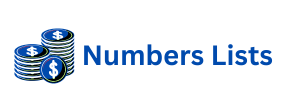Effective content writing goes far beyond simple keyword stuffing. Today, the landscape demands a deeper understanding of how search engines process information. Semantic SEO is the key to creating content that truly resonates with both users and algorithms. It ensures your articles provide comprehensive value and answer user intent fully.
Focusing on the meaning behind words and relationships between concepts elevates your content. This approach helps search engines understand the full context of your topic. It allows your pages to rank for a wider array of related queries. Think about topics, entities, and user questions, not just isolated terms.
Understanding Semantic Content Writing for SEO
Semantic content writing centers on topical authority and relevance. It involves exploring a subject in depth. This means covering related concepts, entities, and user queries. Google aims to serve the most relevant and complete answers. Your content should reflect this objective. It must be a definitive resource on its chosen topic.
Keyword research evolves under a semantic lens. It shifts from exact-match terms to understanding user intent. You look for broad topics and sub-topics. You identify questions people ask. This allows you to build a comprehensive content piece. This holistic view strengthens your content’s foundation. It prepares it for long-term search visibility and impact.
Integrating Keywords and User Intent for Deeper Engagement
Successful content starts with deeply understanding user intent. What problem is the user trying to solve? What information are they seeking? Tailoring your content to these questions is crucial. It ensures your writing directly addresses audience needs. This also helps in crafting compelling and relevant headlines. These headlines draw readers in and guide their journey through your text.
Strategic keyword placement remains important, but it is not the sole focus. Instead, use natural language. Incorporate variations and synonyms seamlessly. This signals to search engines that you have a rich understanding of the topic. High-quality content provides real value. It fosters trust and builds authority over time. Always prioritize the reader’s experience first. A great user experience will naturally lead to better SEO outcomes.
Enhancing Authority with External Backlinks and Trust Signals
An External Backlink acts as a powerful vote of confidence. When reputable websites link to your content, it signals authority. Search engines interpret these links as endorsements. They indicate that your content is valuable and trustworthy. Earning these backlinks is a cornerstone of off-page SEO. It boosts your domain’s credibility significantly.
Building a robust backlink profile takes time and effort. It requires creating exceptional content that others genuinely want to share. Outreach to relevant industry sites is often necessary. Guest posting on authoritative blogs can also generate valuable links. Remember, quality over quantity is vital here. A few strong, relevant links are far more impactful than many low-quality ones. Focus on earning links from sites that align with your content’s niche.
Optimizing Site Structure with Strategic Internal Backlinks
Beyond external validation, the power of an Internal Backlink should not be underestimated. These links connect pages within your own website. They are critical for distributing link equity. They also help search engines crawl and understand your site structure. A well-planned internal linking strategy enhances user navigation. It guides visitors to related content. This keeps them engaged on your site for longer periods.
Effective internal linking highlights important pages. It directs authority from stronger pages to weaker ones. This strengthens your overall site’s SEO performance. Use descriptive anchor text for internal links. This helps both users and search engines understand the linked content. Consider creating pillar pages that link to several related cluster articles. This structure builds strong topical hubs. It makes your website a valuable resource. It also helps in ranking for broader keywords.
A Holistic Approach to Semantic SEO and Content Strategy
Combining semantic SEO principles with a smart linking strategy yields powerful results. Your content becomes more discoverable and authoritative. Users find answers to their complex questions. Search engines recognize your site as a go-to resource. This synergy creates a virtuous cycle of engagement and visibility. Each piece of content contributes to a larger, cohesive narrative.
Continuously monitor your content’s performance. Adapt your strategy based on analytics and new trends. The digital landscape is always evolving. Staying agile ensures your content remains relevant and competitive. Embrace semantic SEO for sustainable growth. Build a foundation of trust and authority. This will benefit both your audience and your search engine rankings. Your content writing efforts will truly shine.
